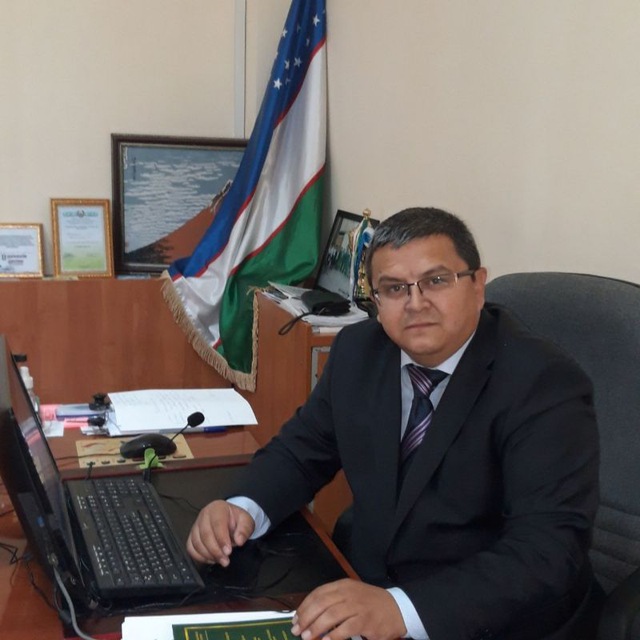PARDAEV AZAMAT BAHRONOVICH
Pardaev Azamat Bakhronovich
Doctor of Philological Sciences | Professor

Pragmalinguistics, current problems of the Uzbek language, psycholinguistics
1992-1993 - Worker of the collective farm “Shodmon Umarov” of the Kitab district of the Kashkadarya region;
1993-1998 - Student of the Faculty of Uzbek Philology of Samarkand State University;
1998-1999 - Teacher at Samarkand College of Agribusiness (Agriculture);
1999-2002 - Full-time graduate student at the Department of Uzbek Linguistics at Samarkand State University;
2002-2005 - Head of the “Center for the Study of Theory and Practice of Building a New Democratic Society” at Samarkand State University
2005-2009 - Head of the Department of Spirituality and Enlightenment at the Samarkand State Institute of Foreign Languages, teacher of the Department of General and Applied Linguistics on a substitute basis;
2009-2011 - Doctoral student at the Department of Uzbek Linguistics at Samarkand State University;
2011-2012 - Senior researcher at the Department of Uzbek Linguistics, Samarkand State University;
2012-2013 - Head of the department for work with academic lyceums and vocational colleges of Samarkand State University, teacher of the Department of Uzbek Linguistics on a substitute basis;
2013-2014 - Lecturer at the Department of Uzbek Linguistics at Samarkand State University;
2014-2015 - Acting Associate Professor of the Department of Uzbek Linguistics at Samarkand State University;
2015-2018 - Associate Professor of the Department of Uzbek Linguistics at Samarkand State University;
2018-2020 - Head of the Department of Uzbek Linguistics at Samarkand State University.
Conducts scientific activities in the field of morphology, stylistics, linguopoetics, psycholinguistics, pragmalinguistics, linguoculturology
1. Lingupooetic characteristics of uzbek auxiliary units in poetry;
2. This role and linguopragmatics of functional paths of speech of the uzbek language in the linguistic system.
3. Uzbek language about linguistiC nature fauxiliary words.
4. Substantial nature of functional words and their pragmatic stylistic value.

